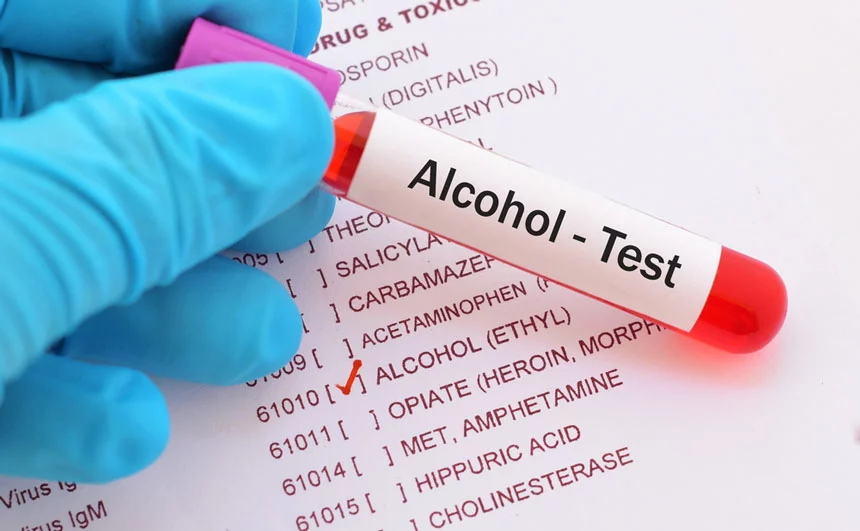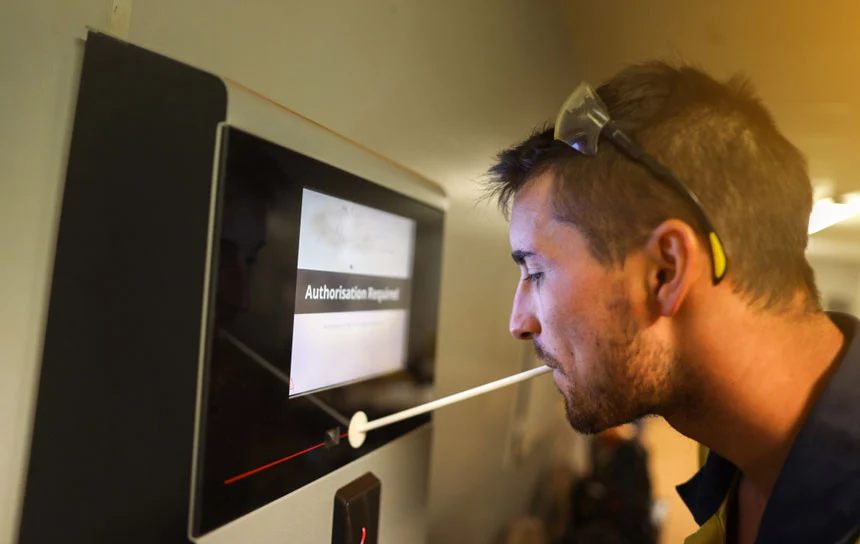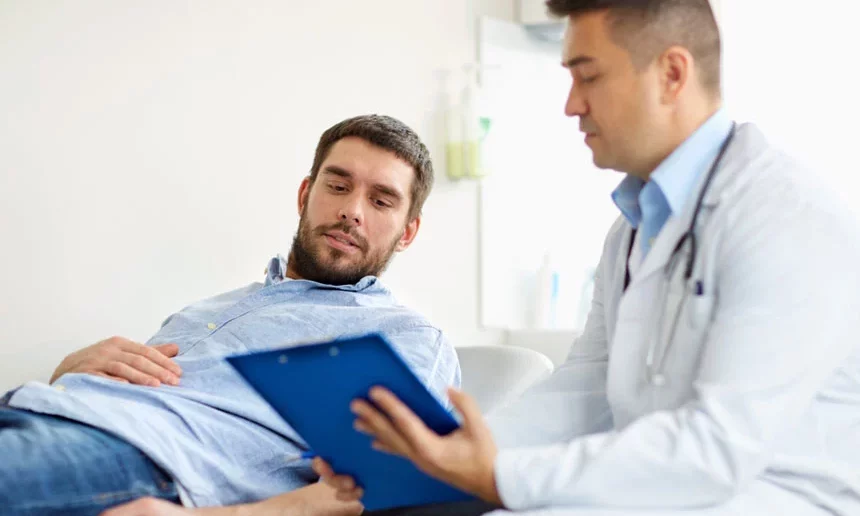Accepting the Results and Finding a Treatment Program
You knew there was a risk of a positive drug test the moment you handed over your sample. Now the results have come back and you are panicked? How can you hold onto your job and make sure your employer does not diminish your role or standing?
The best defense for positive drug test results is nearly always a forthright acceptance and proactive commitment to getting help. No matter the type of drug test or drug screening, a request for help is met with support by both public and private employers. After all, you will be taking the responsibility on your shoulders and returning to work as an improved employee: what’s not to like about that?
Keep reading to find out more about the best defense for a positive test result, and how to locate effective treatment centers that can help you overcome a dirty drug test!
What are Drug Tests?

Drug tests are used to look for signs that someone has been using one or multiple illicit drugs, or even misusing prescription drugs. This is done by gathering a urine, blood, saliva, hair, or sweat sample and conducting drug screenings on them.
These drugs screens can be used to detect suspicious activity with various illicit substances including:
- Alcohol
- Amphetamines
- Barbiturates
- Benzodiazepines
- Cocaine
- Recreational or Medical Marijuana (THC)
- Opioids and opiates
- Phencyclidine (PCP)
- Steroids
Most drug screens will use urine samples, as these can detect signs of past drug use that have taken place within hours or even several days before the individual is tested. Of course, how long a substance will remain in your system can vary based on several factors, including:
- The type of substance you used
- How much of the substance you used
- How much time has passed since taking the substance and getting tested?
- Your biological makeup and metabolism
What are the Different Types of Drug Testing?
There are several different types of tests that can be used for detecting alcohol or other illicit drugs, with the main categories of drugs that are commonly tested for include Amphetamines, Cocaine, Marijuana, Opiates, and Phencyclidine (PCP).
Depending on the specific situation and testing setting, the types of drug tests that may be used to detect the presence of illegal substances include immunoassay tests, gas chromatography, mass spectrometry, and high-performance liquid chromatography.
- An immunoassay test uses antibodies to detect the presence of harmful or illegal substances in a urine sample, and is one of the most common drug tests used today.
- Gas chromatography is one of the more common methods of separating and analyzing compounds, such as would be needed when analyzing bodily fluids for the presence of certain substances.
- Mass spectrometry (MS) is a more advanced testing method used to measure the precise molecular mass of ions and is currently used primarily as a forensic drug analysis method.
- High-performance liquid chromatography is a form of very specific drug testing that is used to separate, identify, and quantify each component in a mixture, which can help identify illicit substances in a test sample.
Where Does Drug Testing Take Place?
Whether scheduled or random, drug testing may take place in a number of settings and for a variety of reasons, including:
Pre-Employment Testing: Many private employers can make it a requirement for applicants to pass a drug test prior to their being hired.
Annual Employee Drug Tests: Employers are also able to make drug tests a part of their annual physical examination. However, they must provide notice of this ahead of time, as failure to do so will be a violation of their employees’ rights.
Specific Cause and Reasonable Suspicion Testing: In the event that an employee is repeatedly displaying signs that may be under the influence while at work or have documented patterns of unsafe work behavior, the employer can administer a drug test in order to protect both the employee’s and their coworkers’ safety.
Post-Accident Tests: In the event that an employee is involved in a work-related accident, a negative or positive drug test result can confirm whether or not the individual was under the influence at the time of the incident.
Post-Rehab Tests: For employees who have completed and returned to work after completing a drug and alcohol rehab program can undergo drug screening as a way of keeping them on track with their recovery.
Random Drug Screening: Using a random drug test approach following an unpredictable selection process to test employees or someone who is in recovery is typically the most effective testing program for accurately detecting and discouraging illicit drug use.
Is it Possible to Receive a False Positive Drug Test?

While rare, false positive test results are possible. After all, most drug tests will detect all the substances a person has consumed within a certain timeframe. However, this does mean that there is a possibility for a false positive result after being exposed to certain substances.
Anything from consuming certain foods, such as poppy seeds, being exposed to second-hand marijuana smoke, or using over-the-counter and prescription medications can make someone’s initial test result into a false positive test result.
Unfortunately, a failed drug test can have a number of negative consequences, including loss of employment and even legal repercussions. If a false drug test failure occurs, it is important to address this issue immediately.
Fortunately, false positive drug tests can be disputed through secondary confirmatory advanced drug tests. This second confirmatory test will usually be more in-depth, and can successfully confirm whether the person is or is not using illicit substances.
How to Prepare For a Drug Test
While conducting a drug screening will usually be fairly straightforward, with the most common method of detecting substance abuse being a urine test, knowing what to expect and how to prepare beforehand can make this process easier.
The most important thing to remember is to inform the person conducting your drug test whether you are taking any prescription or over-the-counter medications, supplements, or foods that contain poppy seeds before the screening, as this can ensure more accurate tests and results.
What Happens During a Drug Test?
Drug screenings may be carried out in several different locations, including labs, hospitals, drug treatment centers, and other secure testing facilities. This helps keep drug tests protected from interference or cross-contamination, which may be more difficult to avoid with at-home tests.
For a urine test, while not likely in cases where someone has no known history of substance abuse, it may be necessary for a healthcare professional to be present while the sample is being provided to ensure it has not been contaminated or replaced with someone else’s urine.
When having a blood sample taken, this will typically be done by inserting a needle into a vein in the arm, which will collect a small amount of blood. There may be a small stinging sensation that comes with this, but the process should otherwise be fast and easy.
What Do the Different Drug Test Results Mean?
There are only two possible results for a drug test: positive or negative. A negative drug test result will mean that either the drugs being tested for were not found in the individual’s sample, or too small of an amount of these drugs to be considered a positive result were detected.
A positive drug test indicates that one or more drugs being tested for were found in the sample, and will need to be followed up with confirmatory tests to ensure the result was accurate.
The Next Steps After Receiving Positive Drug Test Results
If you have received a positive drug test, your best defense for this is to be open and honest about it. Whether testing for your employer or any other reason, being honest about your substance use can make getting the help you need easier.
In many cases, your employer or family members may be willing to help you find a rehabilitation program or other recovery resources to help you. In the case of more severe addiction, filing for Family Medical Leave Act protection can help secure treatment, as well as your job.
Of course, the rights and protections you may be able to receive will depend on your specific state laws. Speaking with your health professionals or treatment specialists can help you better understand what your options are.
Seeking Drug and Alcohol Rehabilitation

Recognizing that you have a problem is just the first step in your process of overcoming these habits of substance abuse. Unfortunately, the recovery process can be extremely difficult without the right support and resources.
This is why many people seek out professional addiction treatment programs and services when looking to get sober. Receiving higher levels of care through rehab can make achieving a drug-free life much easier than if you were to try getting clean on your own.
Drug and alcohol treatment programs can help you overcome your addiction in several ways, including:
- Helping remove an abused substance(s) from your body, usually through gradually weaning you off of your drug or alcohol abuse with a medical detox process.
- Providing clinical support and structure to help you recover from physical medical conditions that may have been caused by your substance use.
- Moving you past a negative and debilitating mindset that can often be caused by an active addiction and onto a positive recovery journey.
- Helping you to recover your normal, healthy relationships, hobbies, and practices before these may have been affected by your alcohol or drug abuse.
- Helping you learn better coping mechanisms for the stress and complications of day-to-day life, without turning to substance abuse.
- Helping you understand that your recovery process is a lifelong commitment that will require constant effort and proactiveness in order to maintain your abstinence.
- Preparing you to take on a lifestyle of independent sobriety, as well as providing you with aftercare support services to lessen the burden of ongoing recovery.
Understanding the Levels of Care in the Addiction Treatment Process
There are several levels of care that may go into your recovery process, each following its own approach to and process for treatment. Depending on how severe your addiction is, this may include:
- Medical detox programs
- Inpatient rehab
- Outpatient rehab
- Medication management
- Dual diagnosis treatment
Whether you are struggling with a drug or alcohol addiction, following a personalized treatment plan that caters to your specific care needs will be your best bet for successfully achieving sobriety.
If you are in need of more intensive care, inpatient and dual diagnosis options may be best for you. Outpatient rehab, on the other hand, is better suited to those in need of more flexible and affordable treatment.
If you are unsure about what treatment options will be best for you, speaking with your medical provider or an addiction specialist, such as a Find Addiction Rehabs representative, can help you narrow down the right choice for you.

FAQs on the Best Defense for Positive Drug Test Results
I’ve gotten a positive drug test with my employer, what happens next?
The answer here is often immediate termination or dismissal following a positive drug test. While you can ask for a drug screening to be retested if it is a false positive result, it almost certainly will not change the results if you actually did take or use substances.
What can I do to overcome a positive drug test result at work?
Making the commitment to attend a treatment program immediately can make a world of difference. Simply ask your employer if they support your attending rehab and getting help, and you may be surprised at how many workplaces are supportive of their staff getting sober.
Find Drug and Alcohol Rehab Programs Today!
If you are struggling with addiction and are ready to get the help you need, know that this is the right choice, and help is available. The Find Addiction Rehabs team is here to help make the process of finding effective treatment options easier!
Our hotline is available 24/7 to provide quality recovery assistance and help you understand your personal care needs, as well as connect you with recovery services that provide the quality care and commitment you deserve.
We can also discuss your payment options, verify your insurance, and find addiction rehab services that work with your budget, location, and lifestyle.
We understand that taking the first step to recovery can be scary, but you are not alone. Call now, and we can get you started on your journey to achieving a healthy, happy, and sober life, today!

